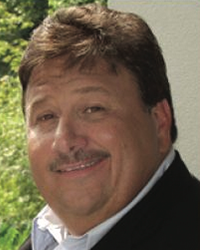
Together We Got This: Local child aiming to improve the world – one wristband at a time
June 1, 2016
Chauvin wreck a painful ordeal for community
June 1, 2016Some Terrebonne Parish council members may have skirted Louisiana’s Code of Ethics by attending a May 13 “celebrity roast” without paying the $100 per seat admission price.
Members who attended the roast of Parish President Gordon Dove at the Cypress Columns said they were not aware seats were $40 above the food and drink limits
contained in the code; Some said a deputy council clerk advised them they could attend and gave instructions for doing so. The council members also don’t know who
actually paid for the tables or seats they sat at, and whether any of those entities do business with the parish, which could raise another state Ethics Code issue.
“I was told to show up and I would be seated and it was OK that my husband come,” said Councilwoman Christa Duplantis-Prather.
The call, she said, came from Council Deputy Clerk Suzette Thomas. Thomas could not be reached to answer questions about details, such as who authorized her to make the invitations.
“There are lots of times we are invited to things, to show up and be there in support,” Duplantis-Prather said. “I was pretty much supporting the organizations raising money. I didn’t see a problem with getting a phone call, I like to go to everything. It’s what we have done for years.”
The Louisiana Board of Ethics, which ultimately determines whether the code has been violated, has not been informed of the potential gaffe, and so is not known to be investigating it at this point.
The Board has the option of imposing sanctions if violations are determined ranging from censure to fines. Public officials have the privilege of seeking an advisory opinion from the board on whether an action they are contemplating is permitted, but only before that action is taken.
Proceeds of the HTV-10 Celebrity Roast, after costs, will benefit two well-known and respected charities, the Foundation for TGMC Terrebonne and the Gordon “Bubba”
Dove Jr. Foundation. Promotional materials for the celebrity roast also state that the “HTV Veterans Fund” would share in the profits, although a check of various records by The Times has revealed that there is no HTV Veterans Fund, a fact attested to by HTV owner Martin Folse himself.
A new provision was added to state ethics laws two days before the banquet, which allows elected officials to accept admission “to a fundraising event held by or for the benefit of an educational institution or by or for the benefit of a nonprofit organization which conducts educational programs.”
CHANGE IN LAW?
At least one parish council member expressed a belief that the provision, passed as Act 87 of the 2016 general session, meant admission to the roast was not a violation of the ethics laws. The state’s ethics board has yet to address the question of whether the Houma roast fell into the definition of Act 87. Members of the region’s state legislative delegation who attended, and whose conduct is governed by the same laws, said they took no chances and paid for their tickets themselves.
Parish President Dove said he doesn’t believe council members did any wrong.
“These were honored guests,” Dove said, noting that their presence was recognized
from the dais during the event.
Kathleen Allen, administrator for the Louisiana Board of Ethics, said in an interview that she could not comment or offer opinion specific to the roast or any other event. She indicated, however, that something more is required, beyond a tip of the hat or calling of a name, for the exemption allowing free admission to attach.
“They have to be honored on the program; they have to have given a speech or been
on a panel for discussion purposes,” she said, explaining when generally an elected
official may be allowed to attend an event gratis.
Dove said that the council members who attended were identified by name and stood
up to be recognized.
Parish Council Chairman John Navy was the only member of the parish council seated on the dais at the roast. He was specifically part of the program and led those who attended in the Pledge of Allegiance.
Some parish council members questioned whether the lack of a ticket – they just showed up at the door and were led to seats at that had been reserved for them – eliminated the potential for violation.
“Whether a ticket or a seat, the definition is a thing of economic value,” Allen said. “If someone else has to pay $100 to enter, it can then be perceived as a thing of
economic value.”
IF THE ANSWER IS YES …
Allen said that when she is asked by a public official if it is appropriate to take a thing of economic value, her first question is whether the person offering the gift has a relationship with that person’s agency.
“If the answer is ‘yes’ then there is a provision in the code that prohibits gifts from those persons. You cannot receive a gift or gratuity from someone who has a relationship with your agency,” Allen said.
If the offer is not from someone with whom the office-holder’s agency has a relationship, the next question Allen asks is “are they giving it to you because you hold that public position?”
“You cannot receive a thing of economic value to perform your duties and responsibilities, the board has interpreted, because of your public position,” Allen said.
LINE OF DUTY
That council members were invited specifically because they are council members and for no other reason, some ethics laws experts said, means they were performing their duties as council members.
Answers to questions about the genesis of the council member invitations and gratis attendance could lie within e-mails on the Terrebonne Parish information system. But the parish has repeatedly refused requests by The Times to have those e-mails viewed.
PAR’s Robert Scott said his own organization has to deal with such issues at its own annual meeting. The law bars him, he said, from giving free tickets to public officials.
Among council members who attended the roast was Duplantis-Prather, who was
not aware that accepting tickets for herself and her husband might result in an ethics problem.
Councilman Gerald Michel received a call of invitation from the clerk’s office as well. But he opted not to attend.
“I was uncomfortable, and thought it might not be permitted,” Michel said. “And I was not budgeted to pay for tickets myself.”
Councilman Dirk Guidry attended after also receiving a telephoned invitation.
“I didn’t know how much the tickets cost,” he said. “I didn’t know they were $100. I was told to go, so I went. There is a new law that I was told lets us attend charitable events. But if it’s a problem I’ll pay the $100.”
Similarly, Councilman Al Marmande said he went, but did not know he was violating any ethics rules.
Councilwoman Arlanda Williams attended, but she is on the board of the TGMC Foundation, and so even if there was an ethics issue for most council members, it would not apply to her.
Councilman Darrin Guidry serves on the TGMC Foundation board as well. But he did not attend due to a scheduling conflict. Councilman
Scotty Dryden did not attend.
Councilman Steve Trosclair did attend, but could not be reached to discuss the matter.
Whether or not attendance by the members actually did violate ethics laws may never
be determined. Ultimately that decision lies with the Board of Ethics, which may or may not decide to take the matter up.
WORTHY CAUSES
That the two registered charities benefiting from the proceeds of the roast are worthy causes is beyond question. The Foundation for Terrebonne General Medical Center is a 501(c)3 non-profit, which is the philanthropic branch of the hospital. Its mission is “to develop and maintain a comprehensive program of financial giving in the community for the sole purpose of promoting, developing, and expanding the services, functions, purpose, and mission of TGMC in providing exceptional healthcare with compassion.”
The Gordon “Bubba” Dove Jr. Foundation, named for and created to honor the memory of the parish president’s late son, is also a 501(c)3. Its mission is to “further
causes which Bubba held with great importance, including the restoration of the Gulf Coast and the promotion of education to those less fortunate … working toward raising money to make charitable donations to organizations and students in furtherance of those causes.”
VETERANS FUND
The third leg of the charitable tripod, identified in promotional materials and referred to from the dais at the roast as the “HTV Veterans Fund” is a bit more complex. Interviews with Foundation for TGMC officials indicate that so far as they knew, the veterans fund was a typically formed charity to which they would give one-third of what cash remained after expenses and costs for the dinner.
The Times queried Folse, who said there was no entity, that it had been a phrase of
convenience encompassing his desire, as an event organizer, to see some proceeds
go to veterans.
“HTV is not a facilitator or member of any non-profit organization,” Folse said in a statement he released on condition that it be printed in its entirety, a request that is honored here and copied verbatim. “We do as a station give many corporate donations to veterans and will continue to do so. We, as a sponsor and community activist to raise monies for charities; often help veterans attain much needed funds. At the recent charity roast for example, HTV asked TGMC’s foundation to consider that qualified Veteran’s group(s) would receive part of these proceeds. TGMC agreed providing that their foundation regulations would allow this. Any prohibition of that would result in TGMC’s use of the monies in its foundation. The HTV Veterans Fund was simply a way of letting Veterans attending know that part of the proceeds that TGMC disbursed were considering non-profit veterans’ organizations based on HTV’s approval. The TGMC foundation has and will continue to receive all of the receivables for this event. They will in turn decide if and what charitable organization meets the non-profit criteria to accept a donation. At this point I am not sure even what non profit Veterans group or groups will receive any of the funds. I am sure which ever one does will be excited. I continue to look forward to helping all veterans.”
MISLEADING?
Several officials who attended the roast and believed the Veterans Fund was an actual organization were given copies of Folse’s statement and after reviewing it said use of the words “HTV Veterans Fund” at the event and in published materials were “misleading.”
Even those critical of the wording, however, said they are confident Folse had no ill intent, and expressed no doubt about the sincerity of his well-known commitment to veterans.
Houma CPA Michael Bergeron, chairman of the Foundation for TGMC board, will be splitting up the money from the event once all receivables are in. He said he would never write a foundation check to a charity that did not exist, and supposed that his organization’s control systems would have determined that to be the case. In any event, Bergeron said, he will seek to dispose of the “Veterans Fund” share by choosing
an organization or a use for the money that is within his own group’s authorized goals.
‘TOLD TO SHOW UP’
A key issue that could be relevant as to whether ethics laws were violated by council members is that while certain charities did benefit, it was a for-profit entity – Martin Folse’s HTV-10 – that sponsored and organized the event.
Answers to questions about who ordered that word about the the roast and that council members could attend may lie within e-mails that the Parish Government has refused to release after being presented public records requests by The Times.
“These documents are of a purely private nature and not used for any business of the Terrebonne Parish Consolidated Government,” the parish’s records custodian, Mart Black, said in a denial.
Because the parish says the emails are not records relating to its business, Black refused to cite an exemption in state law that might justify the denial. He cited instead the Louisiana Constitution’s right to privacy provision, on behalf of people whose names appear in the emails.
The refusals are uncharacteristically harsh for an administration that has been, for the most part, accommodating of public records requests.
The public records tussle began May 16, when the newspaper asked for “e-mails or memos regarding the (Dove) roast from last week, including any referencing tickets made available at no charge to members of the Parish Council.”
Black acknowledged that there are e-mails related to the roast but supplied no other information about them.
Interviews with attorneys who specialize in the rights of citizens to access records as well as good government advocates have resulted in expressions of surprise and concern regarding that parish claim that the emails in the public e-mail accounts are “purely private.”
“There isn’t anything a politician does that is purely private,” said Robert Travis Scott, executive director of the Public Affairs Research Council of Louisiana, who questions whether the Dove administration is marking a hard line in the sand on open records. “It’s a stretch.”
With no guidance from parish government as to just how personal content in the e-mails may be, and being mindful of the parish’s position that the appearance of certain names in the e-mails constitutes a potential privacy violation, The Times amended its request last week, asking that a redaction of names – something routinely done – would allow those people to be protected.
“TPCG and I appreciate and respect your thoughtful request,” Assistant City Attorney Michelle Neil wrote on May 26, “However, TPCG respectfully reiterates its decision that any emails regarding the celebrity roast of May 13th were of a purely private nature and not used for any business purposes of the TPCG. Therefore, they do not meet the definition of a public record, and the TPCG will not release them.
















